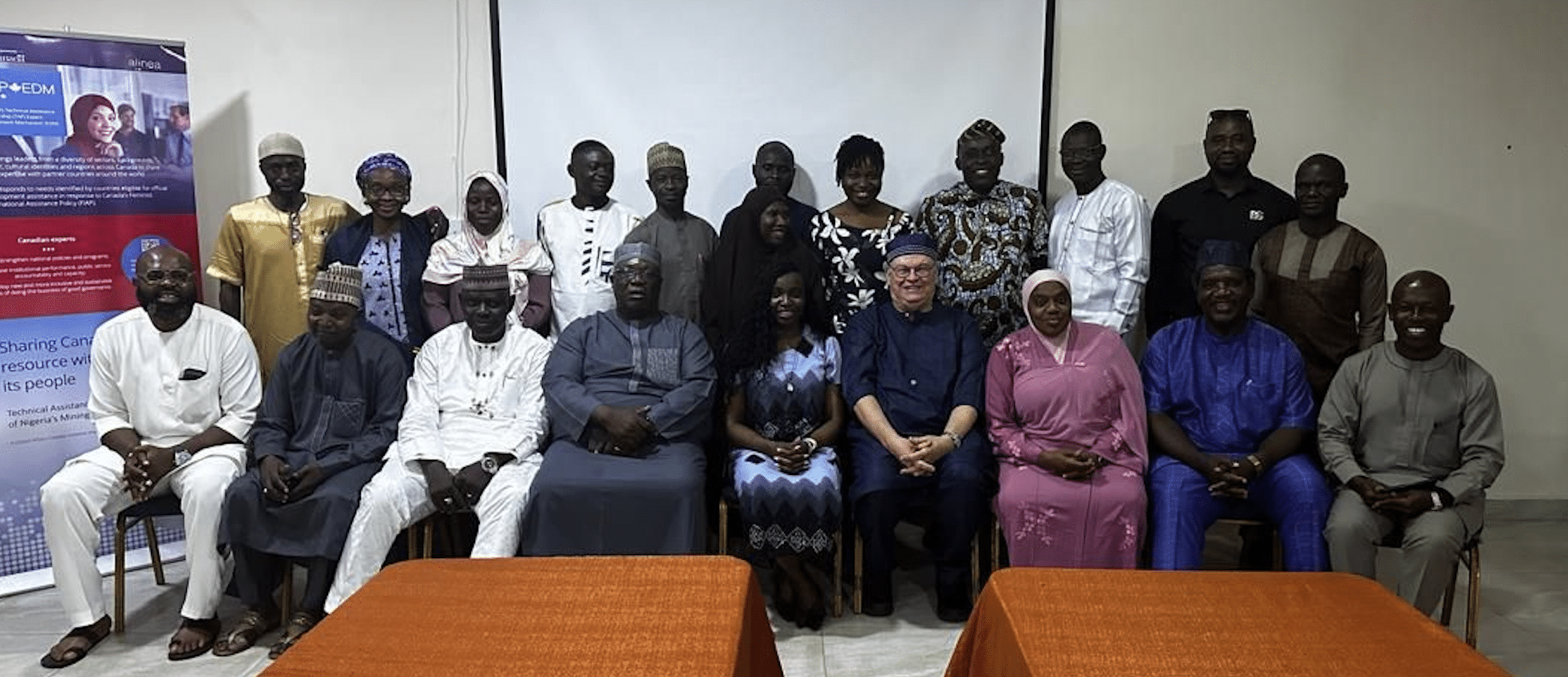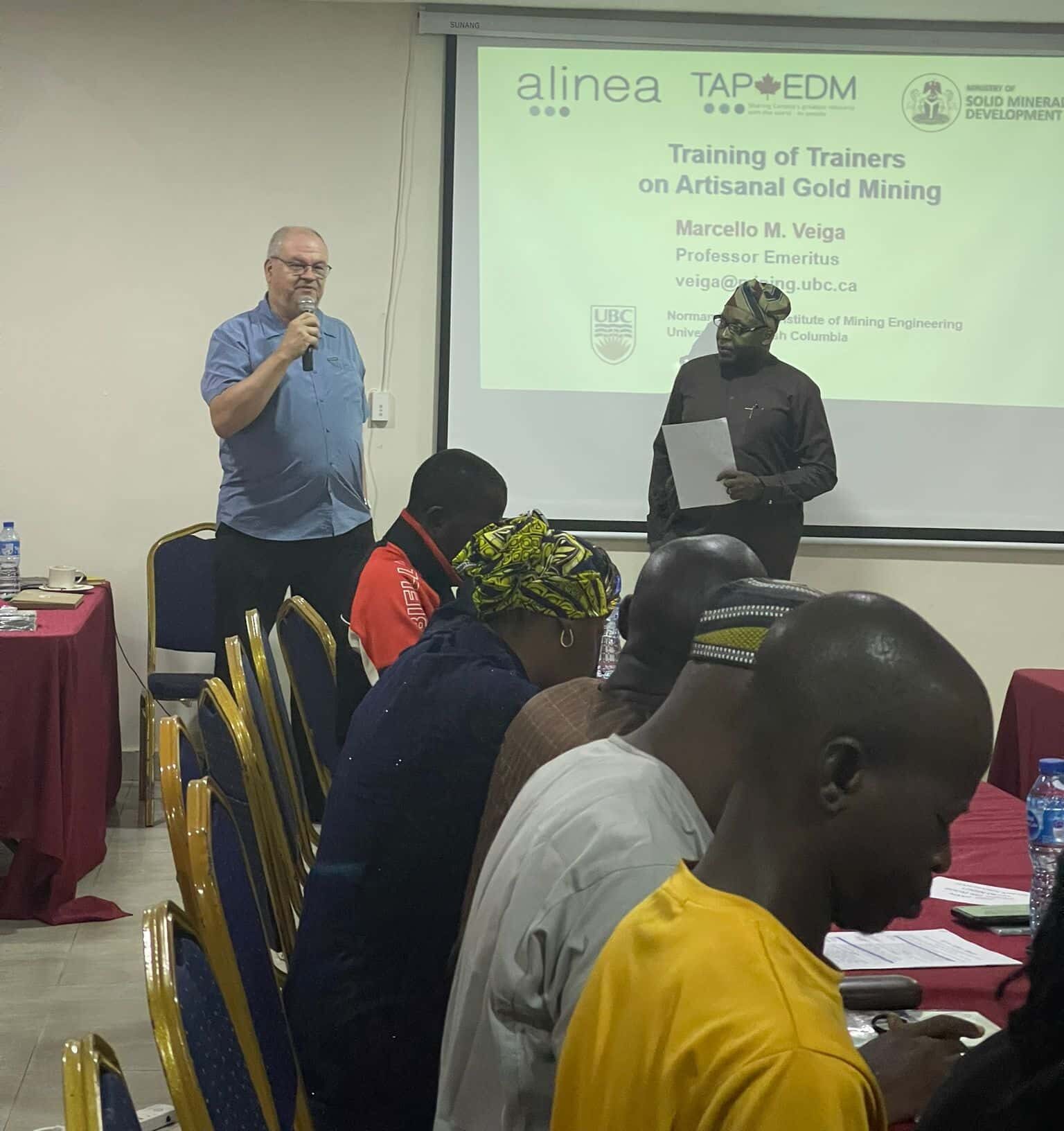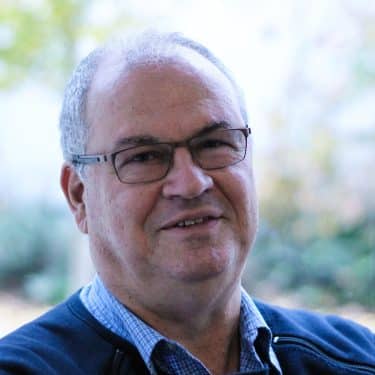

PROJECT UPDATE
Project Overview
This initiative supported Nigeria’s Ministry of Mines and Steel Development (MMSD) in reducing the use of Mercury in Nigeria.
Project Profile
The Technical Assistance Partnership (TAP), in collaboration with metallurgical engineer Marcelo Veiga, partnered with the Mining, Minerals and Sustainable Development (MMSD) initiative to reduce—and ultimately eliminate—the use of mercury in artisanal and small-scale gold mining (ASGM).
The initiative aimed to strengthen the capacity of artisanal miners to adopt mercury-free alternatives, enabling healthier and more economically viable outcomes for miners and their communities. It emphasized adult education and immersive, hands-on learning through comprehensive training, coaching, and mentoring.
In alignment with the Minamata Convention on Mercury and guided by UNDP recommendations, the project prioritized the health and rights of women and children, who were disproportionately exposed due to women’s significant roles throughout the ASGM value chain.
Key Deliverables
- Capacity Support and Training
- Delivered training on mercury-related challenges and solutions in artisanal gold mining
- Facilitated workshops at Uke and Minna mining sites to present findings on mercury and gold losses, and demonstrate improved techniques achieving 80% gold recovery
- Conducted a three-day training focused on gender issues in artisanal mining
- Provided technical assistance for lab setup and future planning for gold analysis
- Led a week-long training course on artisanal gold mining practices
- Technical Support and Knowledge Products
- Conducted sampling and completed a Metallurgical Balance Report on gold and mercury losses
- Prepared a procurement list of main equipment for a gold assessment laboratory
- Completed three field visits and documented findings in formal reports
- Distributed training materials and presentations
Project Outcomes and Lessons Learned
The project enhanced MMSD’s capacity to promote safer, more profitable alternatives to mercury and to advance environmental practices that support resilient, healthy communities. A key lesson learned is that artisanal miners engage most when activities focus on improving gold recovery rather than on mercury elimination alone. Once miners see that amalgamation is inefficient and reduces recovery, mercury phase‑out follows more naturally. A permanent on‑site demonstration capacity—through a training facility or field team—was recommended to reinforce better practices. Leadership changes and limited baseline data caused delays, underscoring the importance of accurate data for improving operations and reducing mercury use.
Direct Project Reach:
- 167 participants engaged through workshops, training, technical support, and outreach activities
Public Engagement (Canada):
- 83 Canadians reached through outreach and engagement activities
Public Engagement Activities:
- Metallurgical engineer Marcelo Veiga:
- Participated in the TAP‑EDM Showcase Event and Knowledge Harvest Meeting in Edmonton.
- Delivered a presentation to university engineering students on mercury in artisanal gold mining and the initiative
- Co-authored the journal article “Assessment of Gold and Mercury Losses in an Artisanal Gold Mining Site in Nigeria and its Implication on the Local Economy and the Environment”
- Co-authored and presented a paper, “Obtaining Gold and Mercury Losses in an Artisanal Mining Site in Nigeria”, at an international conference in Cape Town
- Shared initiative-related LinkedIn post by a contributing PhD student
- Participated in filming three promotional videos

